WESTERN EUROPEAN MEMBERS MUST SPEND MORE ON DEFENSE AND BECOME SELF RELIANT …
As the North Atlantic Treaty Organization (NATO) celebrates its 70th birthday, we are calling out delinquent and freeloading members of the alliance who are draining the U.S. of valuable resources and jeopardizing NATO’s ability to provide an effective defense against military attack.
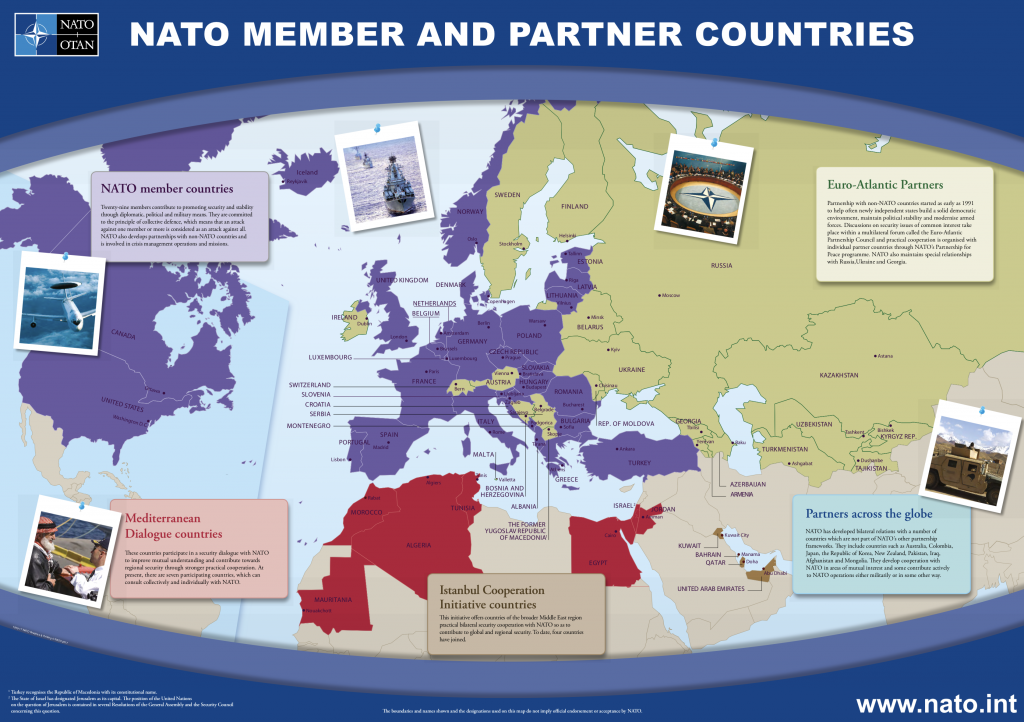
In 2006, as recorded in a WSJ article, “The revival of tensions with Russia and the Sept. 11, 2001 attacks caused the U.S. to push NATO members to agree to dedicate 2% of their GDP to military spending. At the time, seven of the 20-plus nations met that level. The U.S. spent 3.7% of GDP on the military that year. NATO members agreed to aim for that figure in the years that followed but struggled to reach that number, particularly after the world economy collapsed at the end of the decade and the end of the Cold War led some members to become complacent.“
In 2017, the 29 member nations cumulatively spent nearly one trillion dollars on defense and committed around 18,000 troops to NATO special missions in Afghanistan and Kosovo. However, the United States is carrying a vastly disproportionate amount of the financial and manpower burden.
While U.S. GDP represents 51% of the alliance’s total GDP, it accounts for 72% of alliance defense expenditures.
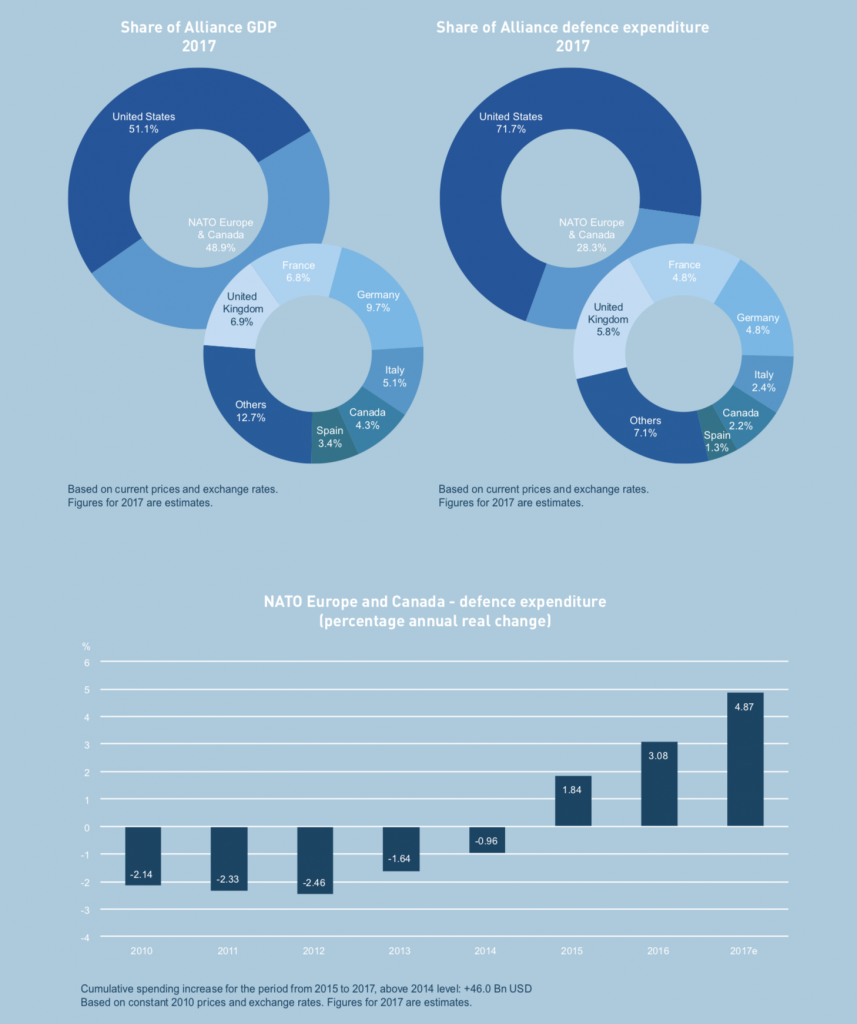
As you can see in the chart below (Graph 4) from NATO’s 2017 annual report, the U.S. spends 3.57% of GDP on defense, while NATO Europe and Canada only spend 1.45%.
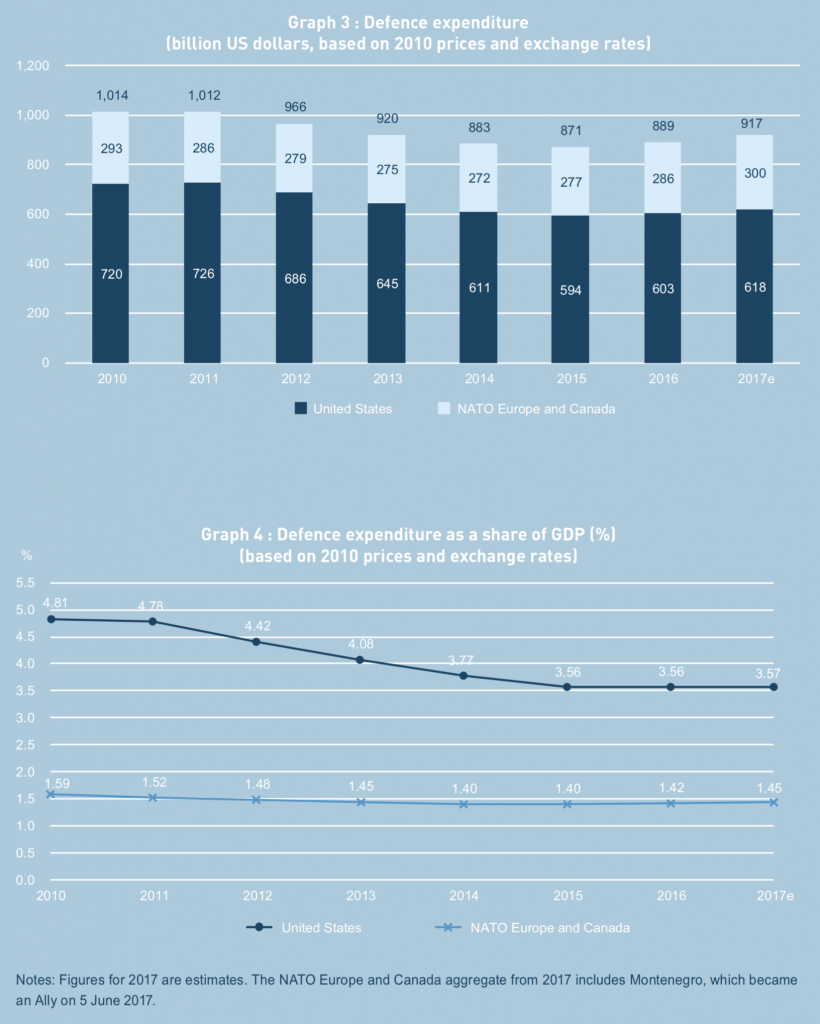
In this chart below, we compared NATO member wealth measured by GDP per capita PPP (blue bar) with status of their commitment to spend 2% of GDP on defense (gold line).
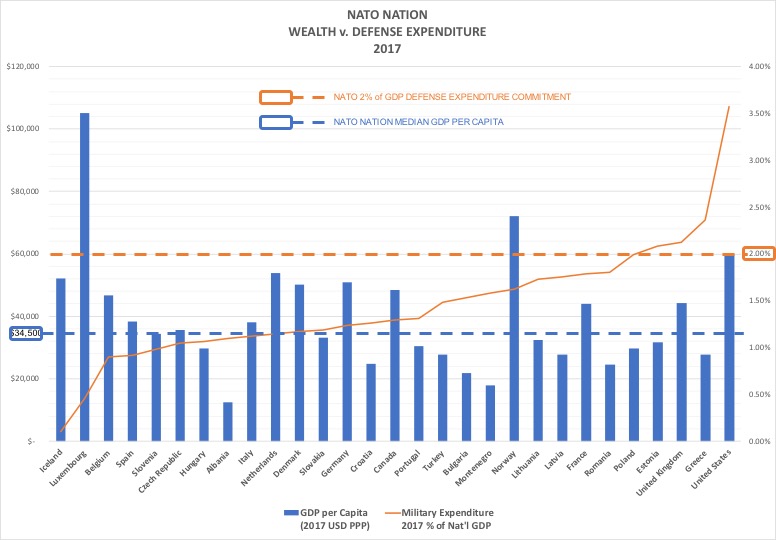
FH also compared NATO members’ national military personnel with their troop commitments to the alliance.
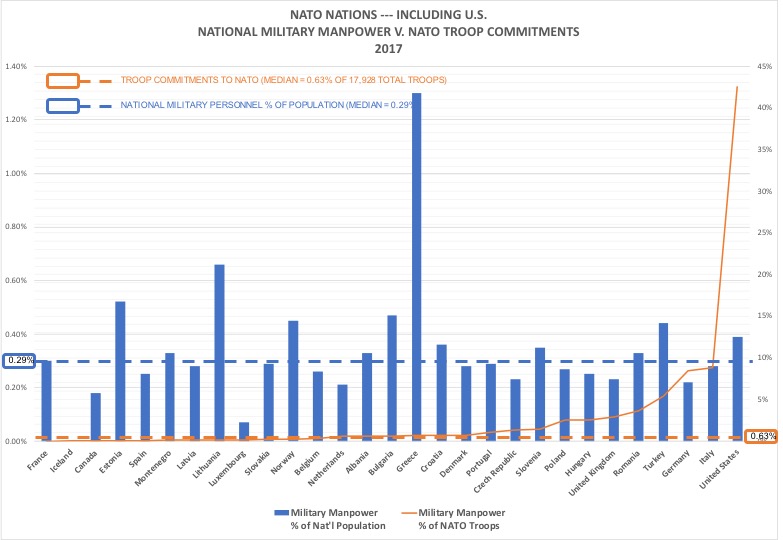
U.S. troop commitments to the alliance were so high (42% of NATO deployments) that it distorted the graph, so here is the same chart excluding U.S. data.
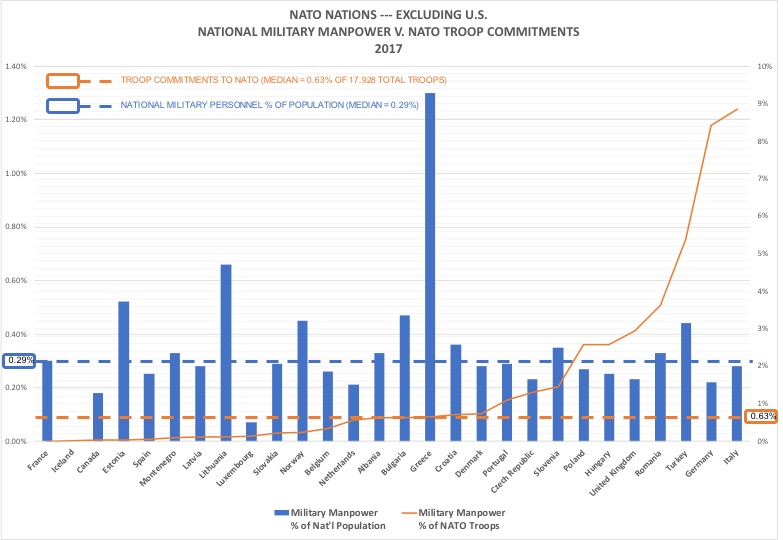
And, finally, here is a basic scorecard scattergram of NATO member standing (again, excluding the U.S.) with respect to the 2% of GDP goal for defense spending and the 0.63% median troop commitment.

BOTTOM LINE:
The U.S. spends 3.57% of GDP on defense, accounts for 42.5% of NATO troop commitments, and has more than 64,000 troops deployed in hundreds of bases in Europe.
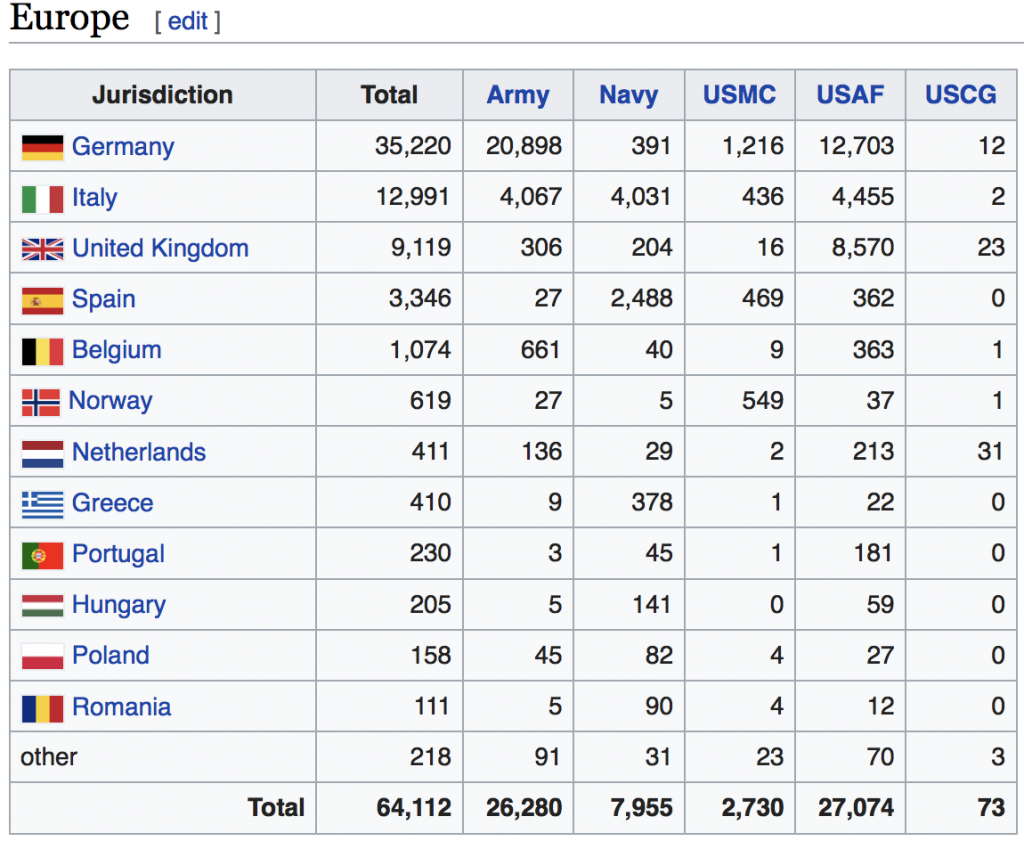
Only Greece, Great Britain, Estonia and Poland are achieving the 2% defense spending goal and committing the same or more troops as the median amount of all NATO members.
While Italy, Germany, Turkey, Romania and Hungary should be commended for committing troops well above the median level for NATO members, their defense spending falls woefully short.
Other alliance members with high GDP per capita, such as Luxembourg, Norway, The Netherlands, Iceland, Denmark, Canada and Belgium, must step up their contributions now … not by the weak NATO goal of 2024.
President Donald Trump is correct to question the value of the alliance and criticize some members for not spending enough on defense. His frustration is echoed by Secretary of State Mike Pompeo, who told every NATO member that they have an obligation to explain to their citizens the need to increase defense budgets. He rejected what he called “tired excuses” about public opposition to such spending.
As Yoram Hazony, author of “The Virtue of Nationalism, said in a recent WSJ op-ed: “The U.S. cannot be, and should not try to be, the world’s policeman. Yet it does have a role to play in awakening democratic nations from their dependence-induced torpor, and assisting those (the U.K. and eastern European countries) that are willing to make the transition to a new security architecture based on self-determination and self-reliance.”
Hazony continues: “Helping the old western European alliance members become self-reliant regional actors would reduce America’s security burden, permit it to close far-flung military installations, and make American intervention the exception rather than the rule. At the same time, it would free American resources for the long struggle to deny China technological superiority, as well as for unforeseen emergencies that are certain to arise.”
